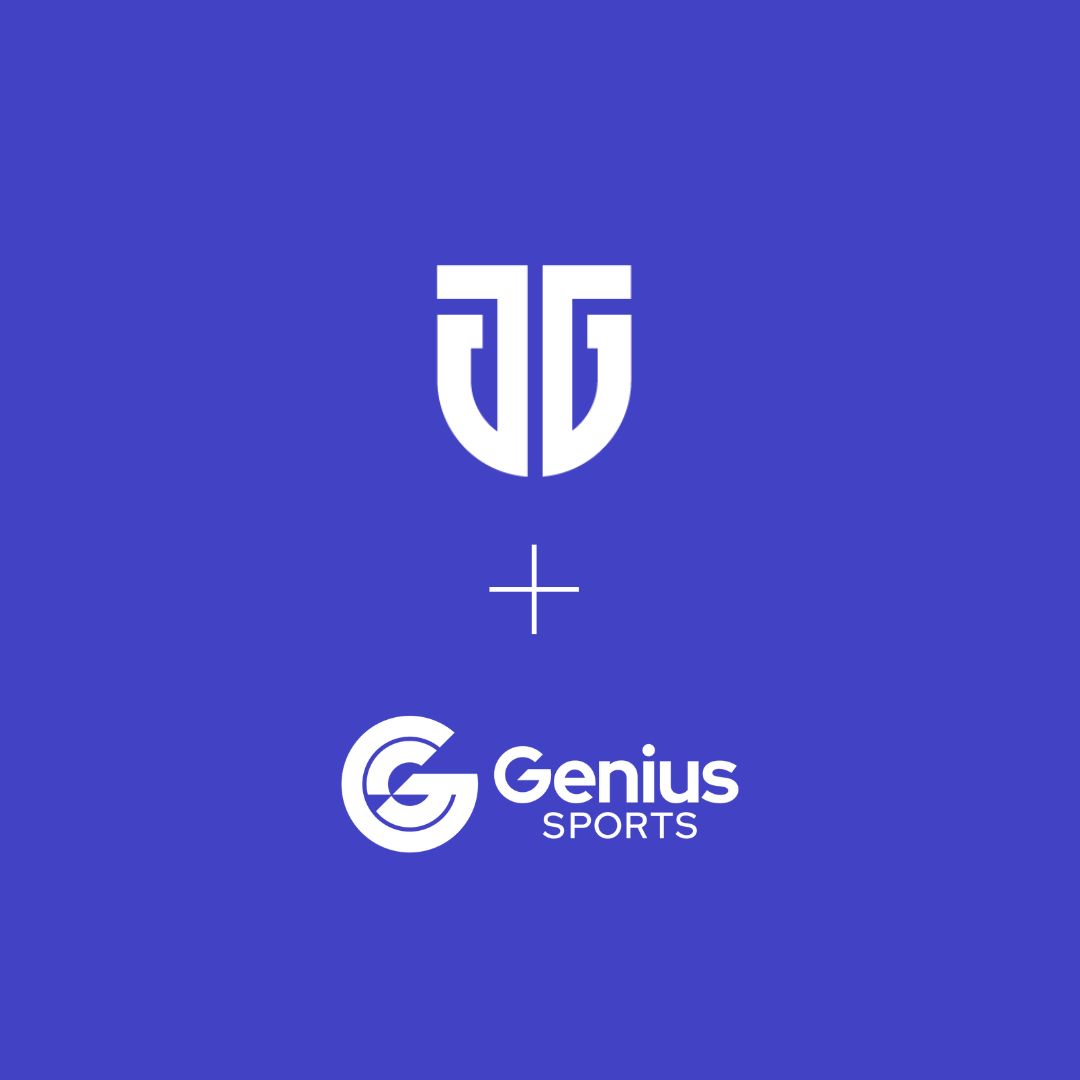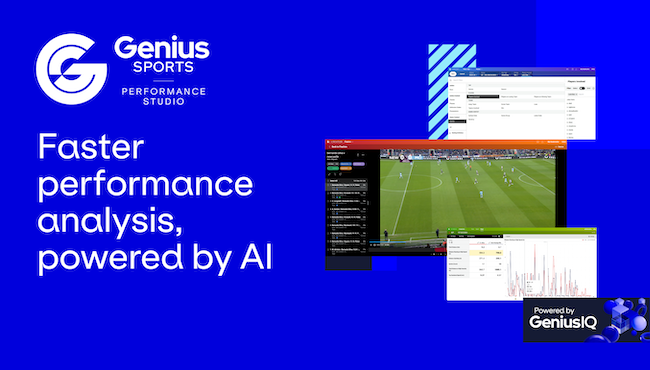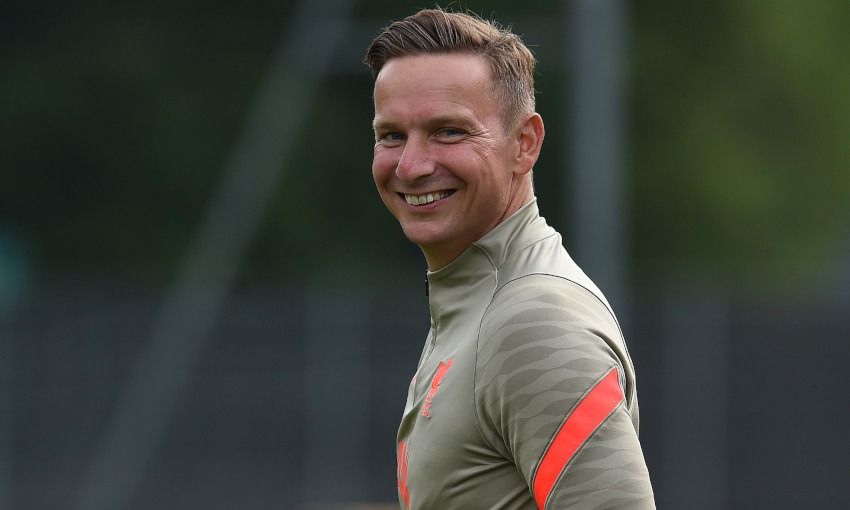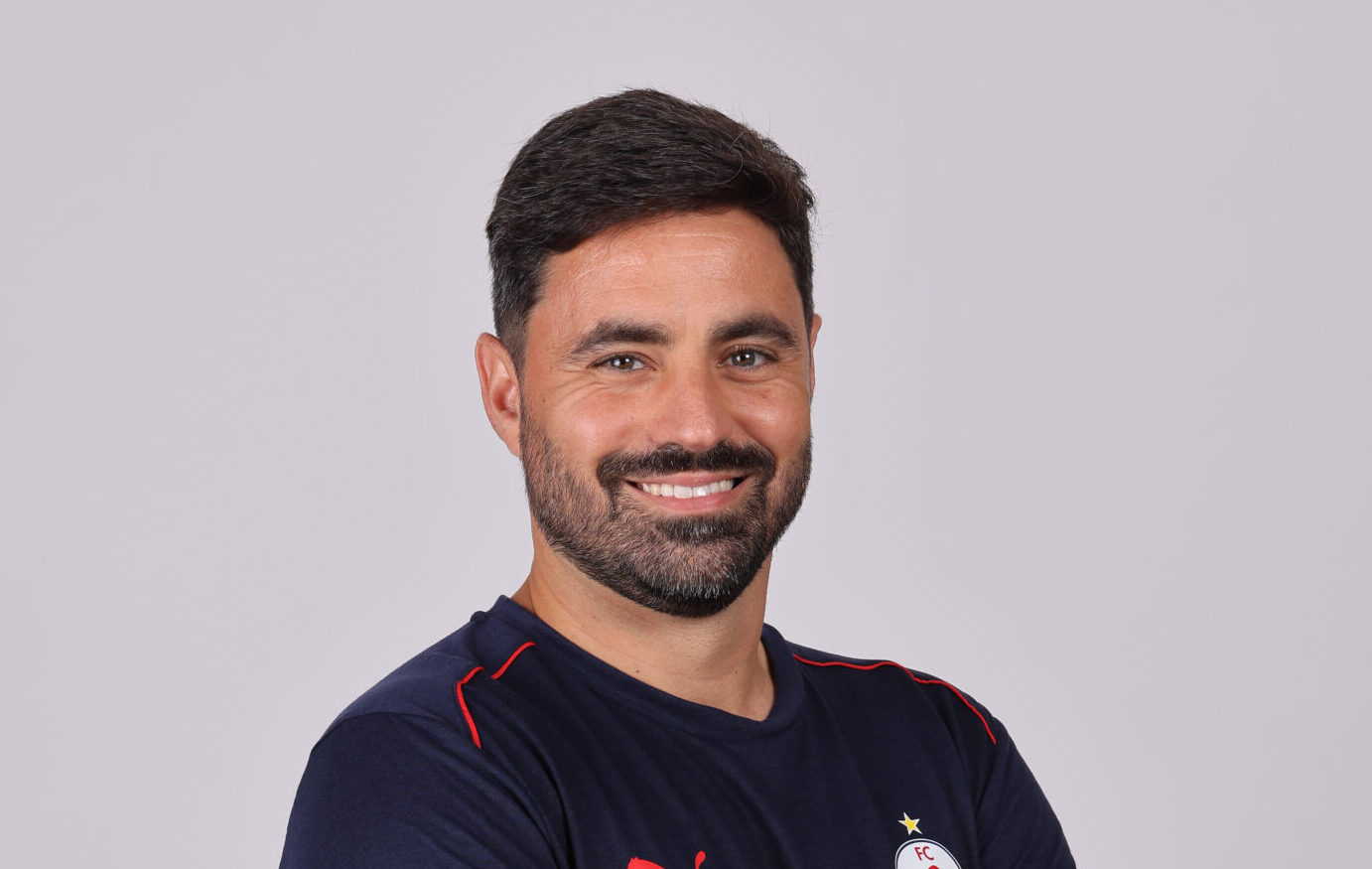
66
Vitor Matos
Elite developer
March 28, 2025
We’re kicking off Season Six of the Training Ground Guru Podcast with one of the top young coaches in Europe: Vitor Matos.
Vitor was the Elite Development Coach at Liverpool from 2019 to 2024, helping to nurture a generation of young talent as well as working closely with manager Jurgen Klopp and his first-team stars.
In this episode, Vitor told us about his coaching journey, what it was like to work under Jürgen Klopp, how to develop top Academy talent, the subtle changes he’s seen under Arne Slot at Liverpool and his own ambitions for the future.
This podcast is brought to you in partnership with our new sponsors, Genius Sports, who are pushing the boundaries of sports performance. You can listen to the episode via the player below and read an edited transcript after that.
Starting in coaching
Vitor Matos: I was a player at a really low level. Around 2003/4, when José Mourinho started at Porto, it was a big boom in Portugal. He was someone with a different background, with a different idea in terms of training, in terms of the game for that time.
It really opened my mind and passion for being in football and I started to love coaching. From that moment on, all my development was in that way.
At 18, I started taking the UEFA courses in Portugal and at the same time started University. Then I got the opportunity to go to Porto’s youth teams. I was brought there by Professor Vítor Frade and Luís Castro, who was the Technical Director.
That’s where I met Pep Lijnders, who was already at Porto. He was the head of developing the technical part of the players and was working with every team at the club.
He was someone with a lot of passion, like he is still; someone full of energy in terms of developing, with a love for the players and for the talent of the players. That’s why I believe we connected so well.
We started sharing ideas, sharing opinions, connecting, and it became a really good and close friendship. Pep is someone who really passionate about coaching. He always tries to improve the team and the players, he tries to be better every day.
I would say he has a lot of creativity in terms of finding solutions for different problems that come from the game. That was something that always brought us together. Pep is always a big reference for me.
Influence of Vitor Frade
Vítor Frade was my teacher at University. I knew him before, from the influence he had on Rui (Faria) and José Mourinho as well. When I started researching about football and training, I found this idea, tactical periodisation, that came from Vitor Frade.
That’s how I decided to go to the University of Porto, where I met him. It was completely overwhelming, blowing your mind for a different way of viewing football and viewing training.
Until that moment, the physical part of the game was what conducted the (training) process and was the main idea. From that moment on, when I met Professor Vítor Frade, it showed me a completely different way; a way related with complexity, a systemic approach.
More than developing by only one dimension, the physical part, it’s about playing and developing under an idea — the game idea of the coach.
That information, of the brain, is what influences the fitness part of the player. That was a completely different view that I fell in love with, because it’s intuitive for the coach, it helps you to organise your game idea and to develop your game idea with your team. That is the main idea, to develop the tactical culture of your team.
Why are there so many good Portuguese coaches?
Football is a big thing in Portugal in terms of the passion people have about it – similar to in England.
If you ask me why there are so many Portuguese coaches having success in different countries, in different contexts, there was a big influence from different names. That helped a lot to open doors for others.
Carlos Queiroz was a big influence in terms of coach developing and then José Mourinho, in terms of developing culture. With the way he stepped up and won so much, it created a big boom and opened doors for everyone.
And in the background you have Vítor Frade, in terms of ideas and process and how he opened the mind and the view of the game and training.
Why aren't there more top English managers?
I don’t have an answer to that. I believe there are good English managers. For example, Porto had Bobby Robson, one of the best managers we had in the club, and he influenced so much the culture of the club and the country as well.
Mourinho worked with him, Vítor Frade as well. So you see already the influence that an English coach has here in Portugal.
You have good coaches, you have Eddie Howe, who just won the Carabao Cup, you have Brendan Rodgers, you have Russell Martin, a new upcoming coach with a completely different approach than the traditional English way of seeing the game.
I think there are a lot of good managers, and I believe that it will happen the same (as in Portugal). Football is like a cycle – if there is someone with success in a country or league or competition, it opens the door for a different one, that’s always the case.
Using these managers as a reference in terms of developing coaches in England, I think that is a big thing. That was one of the things that, for me, was really important – how it was so much work around José Mourinho in Portugal, how it was so much work around different coaches who were in a high level, that allowed a new generation of coaches to learn and reflect and improve.
And using these references, these ideas, is a big part of the developing of coaches.
I was lucky to find really early what I really loved. That was the biggest help for me. At an early age I was exposed to the training and to football. I was able to experience and try different things and that allowed my development.
I was lucky to find something that I was really passionate about and I just started. I don’t think that’s the only way, I think there are a lot of different ways. On the top level, all the managers have different ways to get there – Guardiola had one way, Jürgen had another, and Mourinho had a different way as well.
I just think it’s really important that you try to reflect on what you did and try to improve and be open-minded about new ideas and solutions and be passionate about something, that is the most important thing.
Joining Liverpool
I was in the B team of Porto and, at that time, Jürgen and Pep had a feeling they needed someone (as Elite Development Coach). Pep had been in that role before and at that point they had no one. They felt they needed someone who could take care of the players that were between the first team and the second team.
These were players the club believed had the best potential in the medium-term and short-term.
At the same time, they needed someone who could relate the first team and the second team in terms of game idea and training methodology. Pep spoke with me and introduced me to Jürgen and the club, that’s how it started.
The main ideas were connecting the two teams in terms of concepts, in terms of the game style, so, that when the first team staff or Jürgen went to watch a game of the second team, he could recognise an idea close to the first team – that they were able to press, counter-press, be dominant in the opposition half, and be energetic and aggressive in terms of offensive style. These principles needed to be there in the second team.
At the same time, connecting in terms of training methodology, helping the players have more consistency in terms of developing, so that when they moved up to the first team, they were able to perform better. Making decisions in the second team using the same idea, or at least a similar idea, to the first team made the transition smoother and more natural.
At the same time, we were able to have a better control in terms of the individual development of the player.
The idea was to expose the players to the first team from an early age, so that when the transition came, it would be much smoother; the players would be more comfortable, more confident, and they would be able to settle.
The main idea for me in the beginning was to be on the pitch with the second-team coach, while also making sure the coaches understood the game style and training methodology. You have to develop them according to the game style and training methodology: they need to see it, they need to feel it.
On a normal day, I would be with the first team in a training session, say in the afternoon, helping on the pitch, and then later with these group of players or the second team – which was U23s at the time, U21s now – on the pitch as well.
Or the other way around – I could be with the first team in the morning and the second team in the afternoon. That was how it started, because after some time I was much more involved with the first team and the process was much more in the hands of the U21 manager.
Because when you start developing understanding, the process becomes natural. You manage the process by watching and meetings and these sort of things and I was able to be completely involved with the first team.
I always say, if you don’t have the right manager, you can have the best Academy project, but it won’t happen. You need to choose a manager with the right profile for that. The only way to do this, or the best way, is because Jurgen was there for so long.
You win and earn more time. Winning is the best vitamin for every process, and to create stability.
We created the training group, or the talent group, which was made up of the best players from the Academy.
This was not a fixed group. We could call just the strikers from the U16s, U18s, the B team, or just the midfielders. We could select just the back four and work with them. So it was me and Pep doing the training sessions, with Jurgen watching. The first-team fitness coaches were there, and the first-team Goalkeeper Coach was also present.
This created a relationship, and when the manager starts having a connection with these players, everything becomes much easier.
When there is a need, for example when a (first-team) player is not available, you will feel more confident bringing in a player from the Academy. This is how you build a culture.
It ended up creating a cage, the Melwood Arena, which was designed to bring the natural spirit of football from when you were kids. This was for the first team but it was a big boost in terms of the individual development of the players.
You play in a cage, 4v4, the ball doesn’t go out, always with rhythm, and with an idea, and you play like you’re playing in the street. That creates a completely different boost in terms of development.
Stages of player development
In my opinion, it (the development process) always depends on the player and you never know for certain.
When you send a player out on loan, you try to control the process as much as you can, because you want to send him to the best club, with the best possible manager, playing all the time. But you never know: who will be next to him, if the manager gets the sack, if it’s the right environment in the end.
At the same time, you expose them to a different process, to a different training methodology, maybe to a different game idea, so the player needs to step up.
One thing that sometimes helps is that the secondary market is so big for loan players (in England). You are able to send a player, sometimes 18, to a League One club, and you expose them to a professional level at an early age.
What we tried was to find a process that allowed us to have a better decision on this – on the timing for him to go on loan and whether it’s really the better pathway.
Our idea was to first expose them to first-team training sessions. The talent group was really important in this, because you start by knowing the players individually. By exposing them to the first-team level, you see how they are in that moment and how it will be.
You get to know their character and what they really need in the short and medium term. And then comes the squad planning and which space they will have and if the space will be enough for continuing their development.
Curtis was already a big talent in the Academy. Technical wise, outstanding; character-wise, he has enough confidence for all of us!
Vitor Matos
That’s why we ended up having more loans in the second half of the season, because in the first half of the season you have all the competitions – FA Cup, League Cup, Champions League, Premier League. There are so many competitions that in the end they will have exposure (to first-team football).
You had this situation with Conor Bradley and with Jarell (Quansah) – they went on loan, Jarell in the last part of the season (to Bristol Rovers), Conor from the beginning, and he had a brilliant time at Bolton.
Curtis (Jones) was never on loan. So it is different decisions regarding the moment of the player, how it will be in terms of space and the player’s expectations. Some players are more rushed and prefer to be on loan and playing.
Curtis had this character that he wanted to prove himself all the time on the first team (at Liverpool), so he never wanted the pathway of proving himself out of Liverpool, so it gives you already one direction. And his exposure in terms of games was always good enough for his development.
He was having consistency of exposure and at the same time the development was still coming. That gives you the feeling, ‘Ok, there is no need’ (for a loan). Of course if there is a Premier League club that will ask him to go on loan, maybe his mind will change.
You can control the environment (internally), where sometimes with a loan you cannot control the environment. You have a Loan Manager who tries to be close with the player and connect all the departments around him but in the end you don’t know. It is a process that needs the right people around to decide.
They all have different characters and approaches. Jarell was a kid full of talent, but more than anything, really really smart. He was always trying to understand from the main ones, let’s say in this case from Virgil, and at the same time really open in terms of his development.
He was always trying to understand what his problems were and finding a way one to develop them – and also finding other solutions to hide those problems, so when you’re slow you try to anticipate more and improve that other part.
Jarell was this kind of player, really with a process. Last season he was completely outstanding I would say. The high level he reached was so quick but also so consistent, which showed his quality. Jurgen was a big advocate of him as well.
Curtis was different. He was already a big talent in the Academy. Technical wise, outstanding; character-wise, he has enough confidence for all of us! He needed to step up in terms of game understanding.
For him it was a completely different approach. Sometimes it is really hard this kind of approach, because the line is so thin. You are trying to make a player aware that his game understanding needs to improve; where to use sometimes a different type of pass, or it’s better to turn than play back.
This is tricky, because it can decrease his confidence and at the same time stop his intuition, because he is trying to do something that is not natural.
It is important to have this sensibility and give time. He (Jones) stepped up really good. He’s a really outstanding midfielder. He has everything – physical, technical, game understanding, character. He is an outstanding player, I like him a lot.
Q: Who are the players to look out for among the next generation at Liverpool?
I don’t want to rush anyone, because I know how it works in England! He becomes a god in one day and the next is below everything. There are a lot of players already.
Jayden Danns is outstanding, he has a big talent as a striker. Trey Nyoni is another. I think all these players are there knocking on the door. I will be really happy to see them on the high level.
These are the ones to watch for the future.
What makes Jurgen Klopp so special?
Everything.
I will be always grateful to him, and of course Pep, for opening the door for me – someone coming from outside the staff that Jürgen didn’t know, allowing me to work with such a high level of players and in a high level league. That was priceless.
That shows how he is – completely open to new ideas and to new people, that he isn’t afraid of giving opportunities and helping people develop. He is someone who, with simple words, can make you feel you can conquer the world with him.
He can generate so much inner motivation and self motivation that you can conquer everything and I think this sensibility and his view of football is something really special.
I wasn’t there when he first arrived at Liverpool, but for sure he wanted to make an impact, in terms of mentality, energy, willingness and togetherness.
His concern was what can we improve straight away, to be more competitive. He is someone who, from the beginning, wants to create impact.
Surprise when he said he was leaving?
No, not shocked, because it was not something that came from night to day. It was something that you start speaking about and then, in the end, when it was his decision, he spoke with his staff and we were there to support him.
For me, it was really clear when I arrived that I wanted to leave with Jürgen and with Pep. Then, the decision was that when the next job came for Pep, I wanted to go with him.
This connection with the people you have around is so important and that for me was the most important thing at that time.
Transition to Arne Slot
What Arne did is outstanding, because it is not easy to replace Jürgen. We tried to leave the club – and Jürgen left the club – in a really good moment. The idea was to leave the club in a better position than when he arrived.
The squad we left, we all had a feeling it was a squad ready to win titles. They have an unbelievable team in terms of togetherness. But it’s not easy to come to Liverpool, a big club, and replace Jürgen, someone that was so loved by everyone.
What (Slot) has done is exceptional, of course. The game quality and, at the same time, being able to win consistently and that is the most important thing.
Tactically, I think step-by-step it was the direction of how Arne wants to play. Defending, you can see much more of a man-oriented press and less ball-oriented press, especially in the midfielders, they control much more the man more than the space by itself.
This has changed how and where the press starts, and the spaces can change as well. At the same time, there are different game plans. In one game we can see Liverpool pressing much higher and in another they start with more of a mid block for example.
It’s not about being better or worse, but about doing things differently. This season they are having a lot of success, so this is good.
I think the triggers are changing, regarding who starts the press and who follows. Attacking wise, there are sometimes different starting positions for the full-backs, sometimes they start in deeper lines or facing the game close to the centre-backs. Not all the games – there were different approaches in different games depending on dynamics.
Some dynamics were already there in the past, some were new, in terms of the positioning of the full-backs or strikers and the 10 sometimes as well, and even defending a little bit differently in terms of where the press starts on the pitch.
The most important thing is that there is a clear idea, and this clear idea is possible to achieve with the squad he has and it is possible to have consistently good performance.
That says a lot about Arne and a lot about the whole club on the moment as well.
Transformation of Ryan Gravenberch
You can see players in different roles and one of those is Ryan Gravenberch, who is doing an outstanding season as a number six. That is something that completely improved by itself the offensive game, in terms of how the ball moves, how the ball breaks lines, and the direction he can give with one touch.
Sometimes this kind of thing happens – a need creates an opportunity and this creates a beautiful idea.
In the beginning of the season, everyone spoke about Liverpool needing to sign a number six, because there was no-one. Alexis (Mac Allister) was coming back from the Copa (America) and Ryan grabbed the spot and grabbed it outstandingly. That creates a different dynamic and different things.
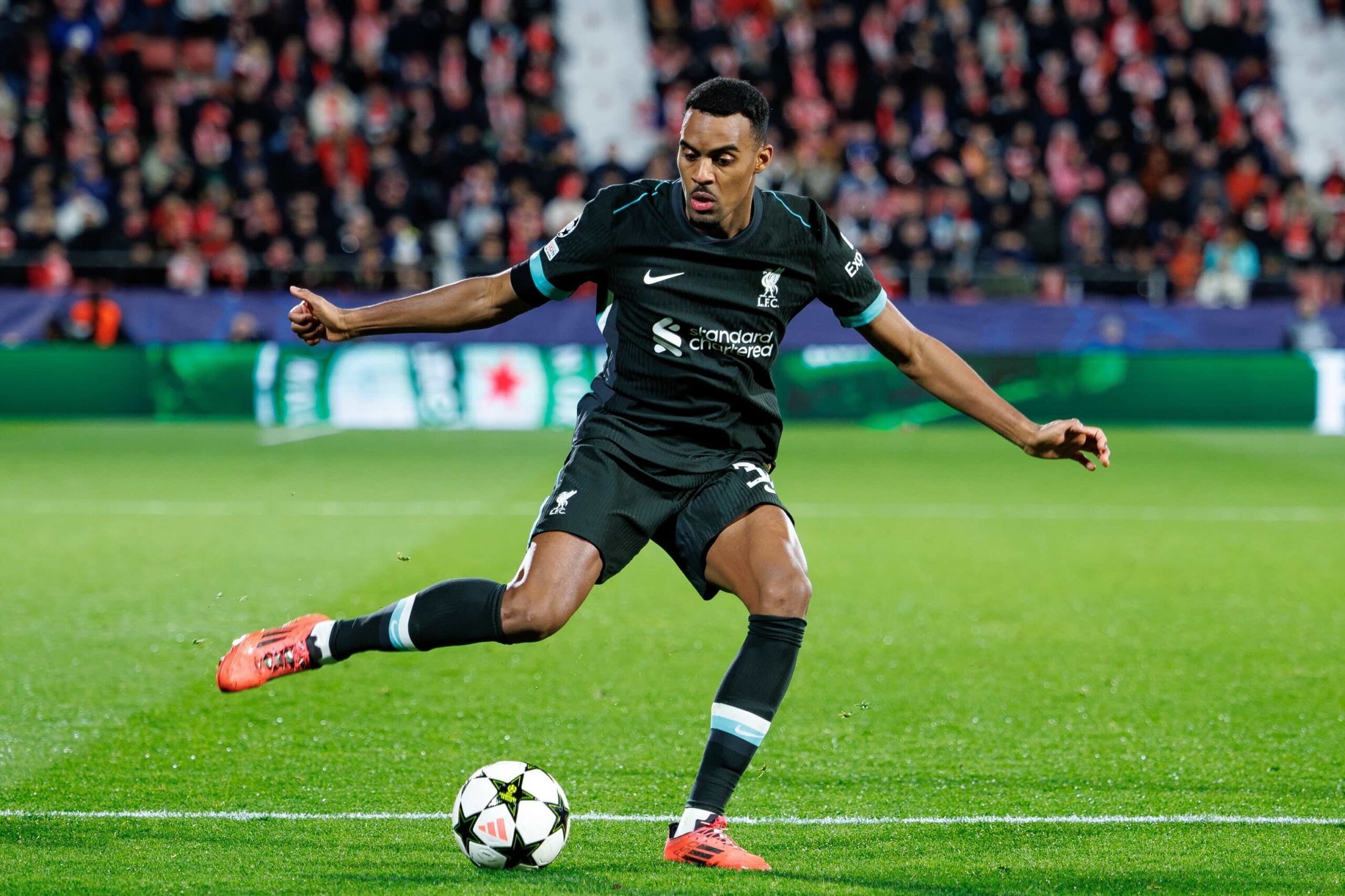
Ryan Gravenberch
We never used Ryan in that position before, because Alexis and Wataru (Endo) were doing outstanding for us. Ryan arrived at the club having had almost one season without consistent game time, so it was not easy for him to adapt.
We all saw his potential when we played against Ajax (in the Champions League in 2020), when he was there, and we were not able to catch him on that transfer window, so he went to Bayern (Munich). But we all – especially Jürgen and Pep – were big believers in him.
We all saw his potential in terms of quality, so it was a matter of consistency and opportunity. This season, everything came together, and I’m really happy for him and for Liverpool.
Red Bull Salzburg
(After leaving Liverpool, Matos was Assistant to Pep Lijnders at Red Bull Salzburg from July to December 2024).
It was a really interesting experience (at Red Bull Salzburg), a really good learning situation. We started really well, with good expectations in terms of the squad and the club.
We were the first Austrian team to qualify through the play-offs to the Champions League, so that’s how we started. Until the first international break, we had really good game quality and consistently showed we were getting closer to the idea we wanted to implement and develop.
Then we suffered a little bit with the good thing of being qualified for the Champions League: the amount of games, the squad size and injuries to our best two players, the most important players in terms of the dynamic we wanted. That created a little bit of instability, and we started to get less consistency in the quality of the game.
Then it’s always about expectations and performing. That’s football.
Q: Was Jürgen Klopp involved in the decision to sack you and Pep Lijnders?
No, he spoke about that publicly already. He only started in January, and I think – like he said – the idea was that everyone could make their decisions until that moment.
So he would only get involved in everything after he got on board, and that happened in January. It’s a matter of timing and how the club was at that moment, how we were as well. I think in football, if it doesn’t click, it doesn’t click. So it’s better that everyone can move on, and that’s what happened.
What are your own ambitions for the future?
I am really clear in my mind that I want to start as a manager. That’s the main ambition and now it is about finding a place, a project. I’ve developed myself, tried to learn, to keep improving.
I learned a lot about myself and want to know myself in this role as well. I think in this moment, I am ready. I feel comfortable with the role and expectations
Q: Would you move back to England?
It is a place where everyone loves football. I loved to live in England, in Liverpool, and I loved football in England. It is a place I would love to be.
More than everything, I want to feel a connection with the people in the club – the Board, the owner, the Sporting Director. That only comes when you start speaking with the people.
When I have this connection, this feeling, this emotional connection with the club, I will say, ‘This is the place I want to be.’ That’s the most important thing. I know 99% of coaches want a project with sustainability, with a big budget, with the possibility to fight for titles. Of course, everyone wants that, that’s true.
I want to feel a connection with the people and the club, that it’s a place I can be happy with my family and where I can make an impact.
What are your favourite training exercises?
One of my favourite exercises is what Pep calls the identity game. It’s a three-team game where you can play 4v4 or 5v5, seven-a-side even eight-a-side and the most important thing is you can compete, you can play.
You play in a different part of the pitch, so one team is defending the goal and trying to break the middle line, and the other team is higher up the pitch and trying to score, but they need to have a proper counter-pressing idea because they need to defend the line.
Then if the other team breaks the line they are able to attack the waiting team on the other part of the pitch. You can manipulate the structures, you can manipulate the players. It is simple, I really like that one.
And I like the pressing rondo. You can do it three teams of three, one team defending, two attacking with the ball. One loses the ball, completely counter press and change the role, start defending and the other one starts attacking.
I also love doing finishing sessions. It helps when you have the finishers we did at Liverpool!
